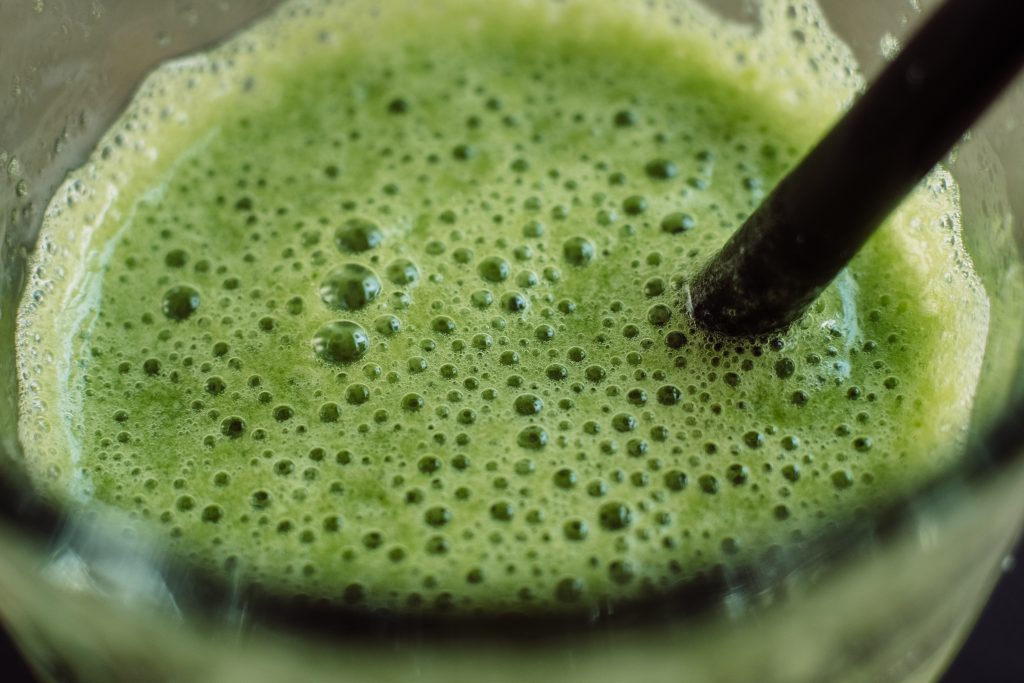
The Power of an Anti-Inflammatory Diet for Optimal Health
An anti-inflammatory diet can help reduce the risk of chronic diseases such as heart disease, diabetes, and cancer” – Dr. Mark Hyman
An anti-inflammatory diet refers to a style of eating that aims to reduce inflammation in the body.
Inflammation is a natural response by the immune system to injury or infection, but chronic inflammation can lead to various health issues, such as heart disease, arthritis, and type 2 diabetes. A diet that is high in fruits, vegetables, whole grains, and lean proteins and low in processed foods, sugar, and saturated fat can help to reduce inflammation in the body.
Here are some of the key elements of an anti-inflammatory diet:
- Fruits and Vegetables: Eating a variety of colorful fruits and vegetables provides important antioxidants and phytochemicals that can help to reduce inflammation in the body. Aim for at least five servings of fruits and vegetables a day.
- Whole Grains: Whole grains, such as brown rice, quinoa, and oatmeal, are a great source of fiber and antioxidants, which can help to reduce inflammation.
- Lean Proteins: Choose lean proteins, such as chicken, fish, and plant-based options, over red meat and processed meats, which have been linked to inflammation.
- Healthy Fats: Foods high in healthy fats, such as nuts, seeds, avocados, and olive oil, can help to reduce inflammation in the body.
- Limit Processed Foods: Processed foods are often high in sugar, trans fats, and artificial ingredients, which can contribute to inflammation in the body.
- Limit Sugar and Saturated Fat: Consuming too much sugar and saturated fat can increase inflammation in the body. Choose unsweetened beverages and limit processed snacks, baked goods, and sweets.
Following an anti-inflammatory diet can help to reduce inflammation in the body, which may lower the risk of chronic diseases and improve overall health. It’s important to focus on whole, nutrient-dense foods, and limit processed foods, sugar, and saturated fat.
Celebrities Embracing an Anti-Inflammatory Lifestyle
An anti-inflammatory diet is not only good for reducing inflammation, but also for promoting overall health and well-being. – Dr. Andrew Weil
Many celebrities and athletes have publicly spoken about their use of anti-inflammatory diets to maintain their health and physical performance. Some examples include:
- Kobe Bryant, the late NBA player, credited his longevity and success on the court to his anti-inflammatory diet.
- Venus Williams, the tennis player, was diagnosed with Sjogren’s syndrome, an autoimmune disease, and turned to a raw, vegan anti-inflammatory diet to manage her symptoms.
- Gwyneth Paltrow, the actress and wellness influencer, advocates for an anti-inflammatory diet as part of her lifestyle brand.
- LeBron James, the NBA player, follows a strict anti-inflammatory diet to maintain his athletic performance and recovery.
- Tom Brady, the NFL quarterback, follows a highly customized anti-inflammatory diet and has credited it for his longevity and success on the field.
These are just a few examples, and it is important to note that everyone’s dietary needs and preferences are different. It is always best to consult a registered dietitian or physician before making any major changes to your diet.
Fighting Inflammation: An Overview of 5 Popular Diets
An anti-inflammatory diet is one of the best things you can do for your health, reducing the risk of a host of chronic diseases. – Dr. David Katz
- Mediterranean Diet: This diet emphasizes the consumption of plant-based foods, such as fruits, vegetables, whole grains, and legumes, and healthy fats, such as olive oil. It also includes moderate amounts of fish, poultry, and dairy, and limited amounts of red meat and processed foods.
- DASH Diet: The Dietary Approaches to Stop Hypertension (DASH) diet is a diet that focuses on reducing high blood pressure and promoting overall health. It emphasizes the consumption of fruits, vegetables, whole grains, and lean proteins, and limits sodium, sugar, and saturated fat.
- Plant-Based Diet: This diet is based on consuming only plant-based foods, such as fruits, vegetables, whole grains, legumes, nuts, and seeds. It eliminates animal products and processed foods, which are high in saturated fat and can contribute to inflammation in the body.
- Ayurvedic Diet: This ancient Indian system of medicine emphasizes the importance of eating according to one’s individual body type and balancing different food groups to reduce inflammation and promote overall health. It emphasizes the consumption of whole, unprocessed foods and spices, such as ginger and turmeric, that have anti-inflammatory properties.
- Low-FODMAP Diet: The Low-FODMAP diet is designed to help reduce symptoms of digestive issues, such as bloating and gas, by limiting foods that are high in fermentable sugars (FODMAPs). These foods can contribute to inflammation in the gut, so limiting them can help to reduce overall inflammation in the body.
So, inflammation in the body can be caused by some foods, like refined carbs and added sugars, red meat, bad fats, and salt. There’s no 1 specific anti-inflammatory diet, but experts recommend switching to nutrient-dense foods and spices high in anti-inflammation compounds, like vitamin C. Some diets like the Mediterranean and DASH diets have been found to have anti-inflammatory effects too.
The goal of this type of diet is to ditch the inflammation-causing foods and switch to healthy options, like more fruit, veg, and whole grains. And, it’s also good for gut health since a ton of immune cells are in the gut. Eating pre and probiotics, like legumes and yogurt, is recommended.
Some tips to get started:
- switch sugary drinks to water
- up your fiber game with more whole grains, fruit, and veg
- eat fatty fish, like sardines and salmon, 2x a week
- get healthy fats from nuts, seeds, nut butter, avocado, and olive oil
- add more herbs and spices and sip on herbal teas
This type of diet can help lower disease risk and improve symptoms of certain conditions. But, it’s not a cure for autoimmune or chronic conditions and should be used in addition to med treatment. Lifestyle habits also impact inflammation, so make sure to get enough sleep, exercise, and manage stress.
The bottom line is, anti-inflammatory diets are packed with good stuff for the body, but it’s important to check with a dietitian and be mindful of any allergies.
7-day anti-inflammatory diet meal plan
Here is a sample 7-day anti-inflammatory diet meal plan:
Day 1:
- Breakfast: Oatmeal with mixed berries and almonds
- Lunch: Grilled chicken breast with quinoa and steamed vegetables
- Dinner: Baked salmon with roasted sweet potatoes and asparagus
Day 2:
- Breakfast: Avocado toast with a poached egg
- Lunch: Whole grain wrap with hummus, veggies, and grilled chicken
- Dinner: Lentil soup with a mixed green salad and whole-grain bread
Day 3:
- Breakfast: Smoothie with spinach, banana, almond milk, and almond butter
- Lunch: Grilled chicken salad with mixed greens, cherry tomatoes, and balsamic vinaigrette
- Dinner: Veggie stir-fry with tofu and brown rice
Day 4:
- Breakfast: Greek yogurt with mixed berries and almonds
- Lunch: Grilled salmon with brown rice and steamed vegetables
- Dinner: Whole grain pasta with marinara sauce and grilled chicken breast
Day 5:
- Breakfast: Whole grain toast with almond butter and sliced banana
- Lunch: Veggie burger with a mixed green salad and sweet potato fries
- Dinner: Grilled shrimp with quinoa and steamed vegetables
Day 6:
- Breakfast: Scrambled eggs with mixed veggies and whole-grain toast
- Lunch: Chickpea salad with mixed greens, cherry tomatoes, and balsamic vinaigrette
- Dinner: Grilled chicken with roasted vegetables and quinoa
Day 7:
- Breakfast: Smoothie with almond milk, spinach, avocado, and protein powder
- Lunch: Grilled salmon with mixed green salad and quinoa
- Dinner: Baked sweet potato with black beans, salsa, and plain Greek yogurt.
This anti-inflammatory diet meal focuses on consuming a variety of fruits, vegetables, whole grains, lean proteins, and healthy fats, and limiting processed foods, sugar, and saturated fat. It is important to remember that this meal plan is just a sample, and may not be suitable for all individuals based on their unique needs and health concerns. It is recommended to speak with a healthcare professional before starting any new diet.
The Power of Anti-Inflammatory Eating
Chronic conditions, such as heart disease and stroke, are the leading cause of death and disability in the United States, according to the Centers for Disease Control and Prevention (CDC). Anti-inflammatory diets have been shown to lower the risk of these conditions by reducing markers of inflammation in the body.
A review from 2016 found that the Mediterranean diet, a classic example of an anti-inflammatory diet, was able to reduce levels of C-reactive protein, a marker of inflammation, by 20% and the overall risk of heart disease by 30%. The diet is believed to maintain the health and resilience of blood vessel walls, reducing the risk of heart disease.
In addition, there is potential for anti-inflammatory diets to also reduce the risk of rheumatoid arthritis, but more research is needed to explore this benefit.
For those with chronic conditions, an anti-inflammatory diet may also help manage symptoms, such as muscle pain, joint swelling, itchy skin, fatigue, and mood swings, leading to an improved quality of life. Research has shown improvement in symptoms and quality of life in people with psoriasis, chronic obstructive pulmonary disease, and depression.
Balancing your diet with fiber, whole grains, fruits, vegetables, and omega-3 fats is key to reducing fatigue caused by chronic conditions, rather than relying on a single nutrient.
FAQ Section
Question: What is an anti-inflammatory diet?
An anti-inflammatory diet refers to a style of eating that aims to reduce inflammation in the body. It focuses on consuming whole, nutrient-dense foods while limiting processed foods, sugar, and saturated fat.
Question: Why should I follow an anti-inflammatory diet?
Following an anti-inflammatory diet can help reduce the risk of chronic diseases such as heart disease, diabetes, and cancer. It may also improve overall health and well-being by reducing inflammation in the body.
Question: What foods should I include in an anti-inflammatory diet?
An anti-inflammatory diet should include fruits, vegetables, whole grains, lean proteins, and healthy fats. Examples include colorful fruits and vegetables, whole grains like brown rice and quinoa, lean proteins like chicken and fish, and healthy fats like nuts and olive oil.
Question: What foods should I limit or avoid in an anti-inflammatory diet?
In an anti-inflammatory diet, it is recommended to limit or avoid processed foods, sugar, saturated fats, and red meat. These foods have been linked to inflammation in the body.
Question: Can I customize the 7-day meal plan to my preferences?
Yes, the provided 7-day meal plan is just a sample. You can customize it according to your preferences and dietary needs. It’s important to focus on consuming a variety of fruits, vegetables, whole grains, lean proteins, and healthy fats.
Question: Can an anti-inflammatory diet cure autoimmune or chronic conditions?
An anti-inflammatory diet can help manage symptoms and improve the quality of life for individuals with chronic conditions. However, it is not a cure. It should be used in conjunction with medical treatment and lifestyle habits such as sleep, exercise, and stress management.
Question: Are there any specific anti-inflammatory diets I should consider?
Some popular anti-inflammatory diets include the Mediterranean diet, DASH diet, plant-based diet, Ayurvedic diet, and low-FODMAP diet. These diets focus on reducing inflammation by emphasizing whole, nutrient-dense foods and limiting processed foods, sugar, and saturated fat.
Question: Are there any known benefits of following an anti-inflammatory diet?
An anti-inflammatory diet has been associated with various benefits, including a reduced risk of heart disease, improved blood vessel health, potential reduction in rheumatoid arthritis risk, and improved symptoms and quality of life in conditions such as psoriasis, chronic obstructive pulmonary disease, and depression.
Weight Loss Plateaus: How Long Will You Be Stuck, Especially as a Woman?
Calorie Deficit Without Sacrificing Flavor: 6 Scrumptious Meals to Try Today
Healthy Eating Made Simple: A Calorie Deficit Meal Plan for Women





